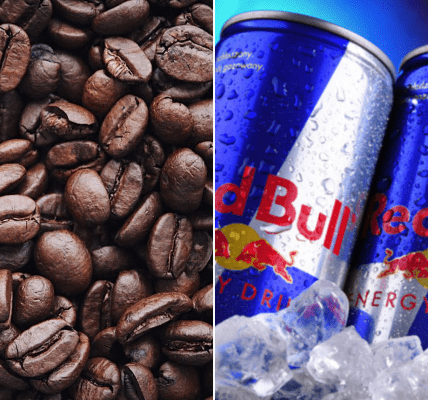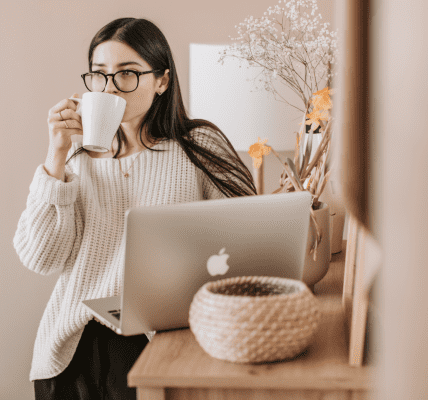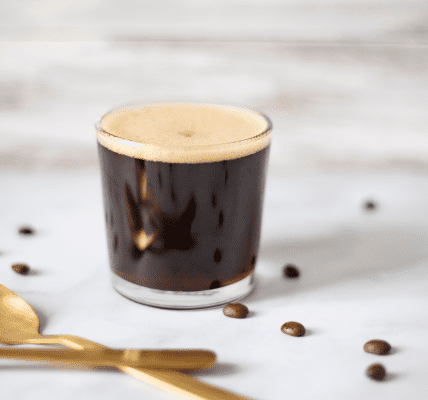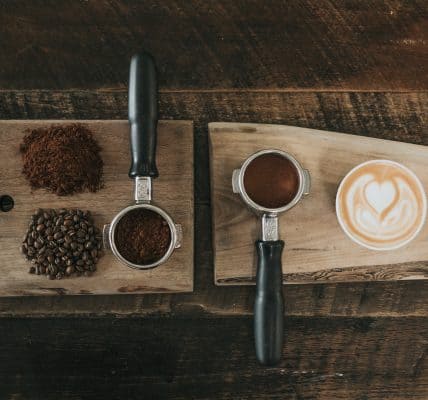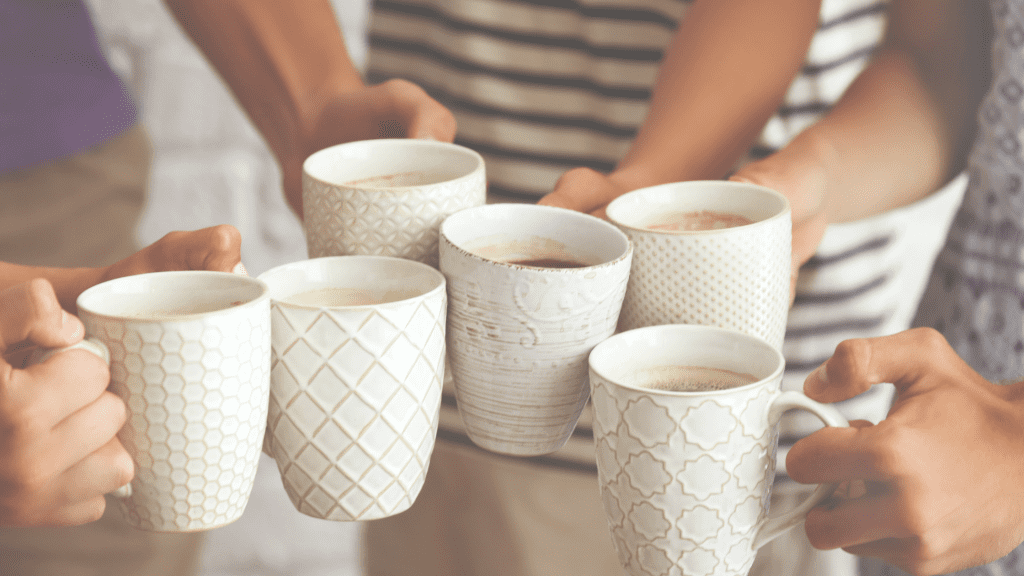
Caffeine and sleep have a unique relationship. When and how you are taking it will determine how your body is going to react to it.
We all know that coffee can charge you up and keep you alert. But for many, it does the opposite!
After finishing your cup of joe, you can expect the caffeine to kick in within five to 30 minutes. And the effects can last up to four to six hours.
But it is not a definite answer. Depending on a lot of different factors, these numbers can change. It’s also possible that caffeine never kicks in; instead, you feel tired and sleepy.
Is there something wrong then? Should you be worried about it? To find all the answers, keep reading.
Why Coffee Keeps You Awake – The Scientific Explanation
Table of Contents
We all know that coffee can help us stay awake and feel energetic, but not many of us know how it does that. So let’s look at the scientific explanation of it.
In our body, we have something called Adenosine receptors that mediate the physiological actions of Adenosine. These receptors are present in different parts of our bodies, such as the large intestine and bladder, lungs, liver, brain, heart, and testis.
Adenosine is a sleep-promoting substance, so the more it builds up in our bloodstream, our cell receptors react in a certain way and initiate neural activities that make us tired and sleepy.
Caffeine, on the other hand, is known as an adenosine blocker. It attaches itself to the same receptors that Adenosine latches onto. Therefore, blocking Adenosine from doing its binding activities that give sleep-promoting effects. As a result, you feel less tired and more energetic.
How Long Does Caffeine Take To Kick In?
The effects of caffeine usually start kicking in within 5 to 30 minutes of consuming coffee. Here, I am talking about intaking less than 200 mg of caffeine.
You get this amount of caffeine from one espresso shot made with 100 grams of ground. But if you are a coffee addict, then there’s a high chance that your body has developed a tolerance to caffeine, and a single shot may not work on you that fast.
There are also other factors, like age, body mass, and overall health, that influence how quickly caffeine will kick in.
How Long Can Coffee Keep You Awake?
Depending on someone’s resistance to caffeine, one shot of espresso can keep them going for about four to six hours. After that, the effects will start fading away, and in about 10 hours, you’ll be left with negligible caffeine in your system.
Here’s Why Coffee Might NOT Keep You Awake
Have you ever heard someone say that coffee does not “work” on them or that they feel sleepy even after drinking coffee? Well, they are not lying.
There are many reasons why caffeine might not work for you, for example, you have a natural tolerance for it. Other reasons why caffeine does not work for some people can include their genes, how they consume caffeine, or even their sleep cycle!
So if you are one of those, you must find the exact reason behind it and learn how you can reverse it and make caffeine work for you! Because the last thing you should do is take triple or quad espresso shots without knowing the problem and assuming you need more.
How Much Caffeine Is Too Much?
According to the FDA, a healthy adult can consume upto 400 milligrams of caffeine daily. That would be around four shots of full-caff espresso. Consuming caffeine in this quantity won’t lead to any health hazards.
However, in the case of certain conditions or medications, this amount can also become too much. If someone is pregnant or breastfeeding or has anxiety-related issues, the suggested amount can still get overwhelming, making them more anxious.
If you have any of these, I suggest taking the help of a healthcare provider and discussing your caffeine consumption limits with them.
In the case of children, it is better not to give them any kind of caffeinated drinks or food.
What Is A Coffee Nap?
Weird enough, but there are actually people who drink coffee before a power nap and call it a coffee nap! You may ask what’s the reason and logic behind it, so let’s get your answers.
Coffee nap is actually a thing! According to the Sleep Foundation, it is just like it sounds; you combine coffee and sleep. But isn’t this counterintuitive, and why even do that?
No, it is not. It actually boosts your alertness and mental acuity.
However, to make it work, you have to be very precise with timing and sequence. Experts suggest that taking coffee right after lunch, during the mid-afternoon, is the best time. Have your lunch, drink coffee, and nap for less than 20 minutes.
When you wake up, you will find yourself more energetic and awake.
But DO NOT take a nap longer than 20 minutes. Naps longer than 30 minutes put your brain into a deep sleep mode, and then you will have what is called sleep inertia. Sleep inertia is the polar opposite of a power nap. So you will feel disoriented, with reduced alertness. In short, you will be in a cranky mood.
Is It Bad To Sleep After Drinking Coffee?
Studies show that drinking coffee before sleeping can actually disrupt your sleep. But it depends on how long before sleeping you take it.
Studies show that having coffee six hours before your bedtime can reduce your sleep by 1 hour. It is OK once in a while, but if it continues to happen on a daily basis, it can lead to detrimental effects and could mess up your daytime functions.
Thus, experts suggest not having coffee after 17:00, especially if having multiple shots of espresso is your thing.
Having coffee three hours before bedtime also decreases your overall sleep, impacting stage 1-2 sleep.
The closer it is to your bedtime, the more it is going to mess with your sleep. So it is not at all a great idea to have coffee before sleep.
Why Does Coffee Make You Tired?
There are some people who have quite an opposite reaction to coffee.
Many know that coffee is a natural laxative, but not many people know that it is a diuretic too! In simple words, it makes you pee more than usual.
So the more coffee you drink, the more you will pee. Which means that you will be releasing large amounts of body fluids within a short span of time. So, eventually, your body gets dehydrated, and feeling tired is a symptom of that.
The lesser body fluid you have, the slower your blood circulation gets, as does your heart rate, leaving you sluggish and tired.
Or if you have your coffee with sugar, you’re probably adding too much sugar. Cappuccinos and frappes are definitely a treat for your sweet tooth, but they are also overloaded with sugar. They are more like drinking sugar with a hint of coffee. So if you are drinking these on a daily basis, there’s a high chance of you experiencing a sugar crash.
Our body processes sugar faster than caffeine. And when we go overboard with sugar or carbs in one go, our blood sugar level drops, leaving us groggy and fatigued.
Also, if you are very sensitive to caffeine, it can suddenly double your epinephrine and adrenaline levels at the same time. So your heartbeat will start racing, wreaking havoc on your body! So instead of doing any good, you will be all anxious, stressed, and tired at the end.
Takeaway!
In one line, caffeine and sleep are not the best buddies. They never were and never will be! Sleep is important for your body more than you realize. It helps you function better, mentally and physically.
Getting inadequate sleep over a long period of time can increase the risk of chronic health problems. So the last thing you want to do is not sleep properly.
Having coffee before sleep puts your body in a tug-of-war between whether it should rest or not. Hence, your overall sleep cycle gets messed and so does your health. So as experts suggest, avoid having coffee at least six hours prior to your bedtime.
FAQ
Q1. Is It Bad If Caffeine Does Not Affect You?
If coffee fails to keep you awake, you probably have built a caffeine tolerance. And there are no significant health consequences related to it.
However, in such cases, you should go for a caffeine detox so that your body can get back to its normal stage and you don’t start consuming high amounts of caffeine to get the kick.
Q2. How To Sleep After Drinking Coffee?
If you drink coffee close to your bedtime and are struggling to sleep, here’s what you can do. Drink a lot of water to keep yourself hydrated. Take a warm shower or bath. Avoid lights in the room and lower the room temperature.
Q3. What Are Some Alternatives To Coffee To Keep Me Awake?
There are some alternatives if you are trying to cut down on your caffeine intake but still want something to sip on that gives you the fuel to get going. You can try matcha drinks. These are full of antioxidants and can help you feel energized.
You can also try green tea, apple cider vinegar, or regular tea.
